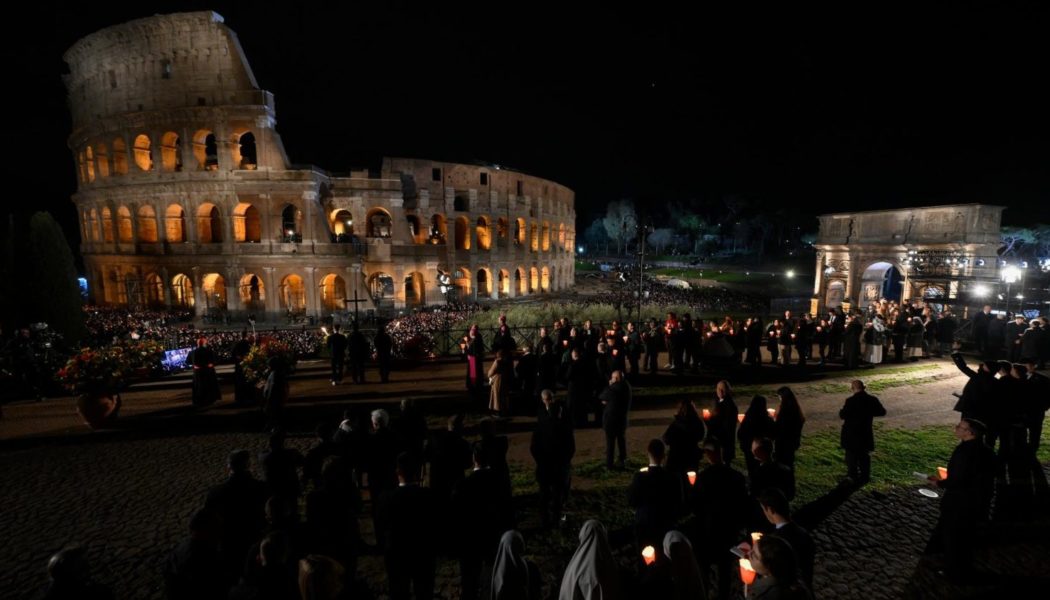
Pope Francis publishes his reflections for the Good Friday Stations of the Cross, saying that “with God, suffering never has the final word.”
By Tiziana Campisi
Pope Francis’ meditations on the Via Crucis for this Good Friday are a dialogue with Jesus, a face-to-face conversation with Christ, made up of reflections, questions, introspections, confessions, and invocations.
The sufferings of Jesus on the path to Golgotha, the loving gaze of Mary, the women who offer their help, Simon the Cyrene and Joseph of Arimathea: all of these figures provoke an examination of conscience that then becomes prayer, with a final invocation that repeats the name of Jesus fourteen times.
Jesus’ silence
Jesus’ journey along the Via Crucis, in Pope Francis’ meditations, unveils profound lessons about prayer, compassion, and forgiveness.
At the first station, Jesus’ silence in the face of unjust condemnation embodies prayer, gentleness, and forgiveness, demonstrating the transformative power of suffering offered as a gift. This silence, often foreign to modern humanity preoccupied with noise and busyness, underscores the importance of listening hearts in prayer.
As Jesus bears the weight of the cross (second station), common experiences of pain, disappointment, and failure come to mind. Despite the burdens we carry, Jesus invites us to find solace in Him, demonstrating that love propels us forward, enabling us to rise even after falling.
Mary: A gift to humanity
The encounter with Mary, Jesus’ mother (fourth station), shows her to be a gift bestowed upon humanity. She embodies grace, remembrance of God’s wonders, and gratitude, urging us to turn to her for solace and guidance. The assistance of Simon of Cyrene in carrying the cross (fifth station) prompts reflection on the difficulty of seeking help amidst life’s challenges, emphasizing the importance of humility and reliance on others.
The courage of compassion
Amidst the crowd’s condemnation and mockery (sixth station), the compassionate act of Veronica, who wipes Jesus’ face, illustrates love in action. Despite the weight of humiliation and defeat, Jesus’ resilience in rising after he falls (seventh station) mirrors our own struggles with life’s pressures and our capacity for redemption through God’s forgiveness.
The greatness of women
The encounter with the women of Jerusalem (eighth station) prompts recognition of the often-overlooked greatness of women, who exhibit deep empathy and compassion. Contemplating Jesus stripped of His garments (ninth station) invites us to see divinity in suffering, urging us to shed superficialities and embrace vulnerability.
The darkest hour
In the darkest hour of abandonment (eleventh station), Jesus’ cry teaches the value of expressing anguish to God amidst life’s storms. The thief’s redemption (twelfth station) transforms the cross into a symbol of love, offering hope even in death. Mary’s embrace of the lifeless Jesus (thirteenth station) signifies acceptance and faith in the transformative power of love.
Finally, Joseph of Arimathea’s dignified burial of Jesus (fourteenth station) highlights the reciprocity of love, indicating that every act offered to God receives abundant reward.
You can read Pope Francis’ meditations here.






